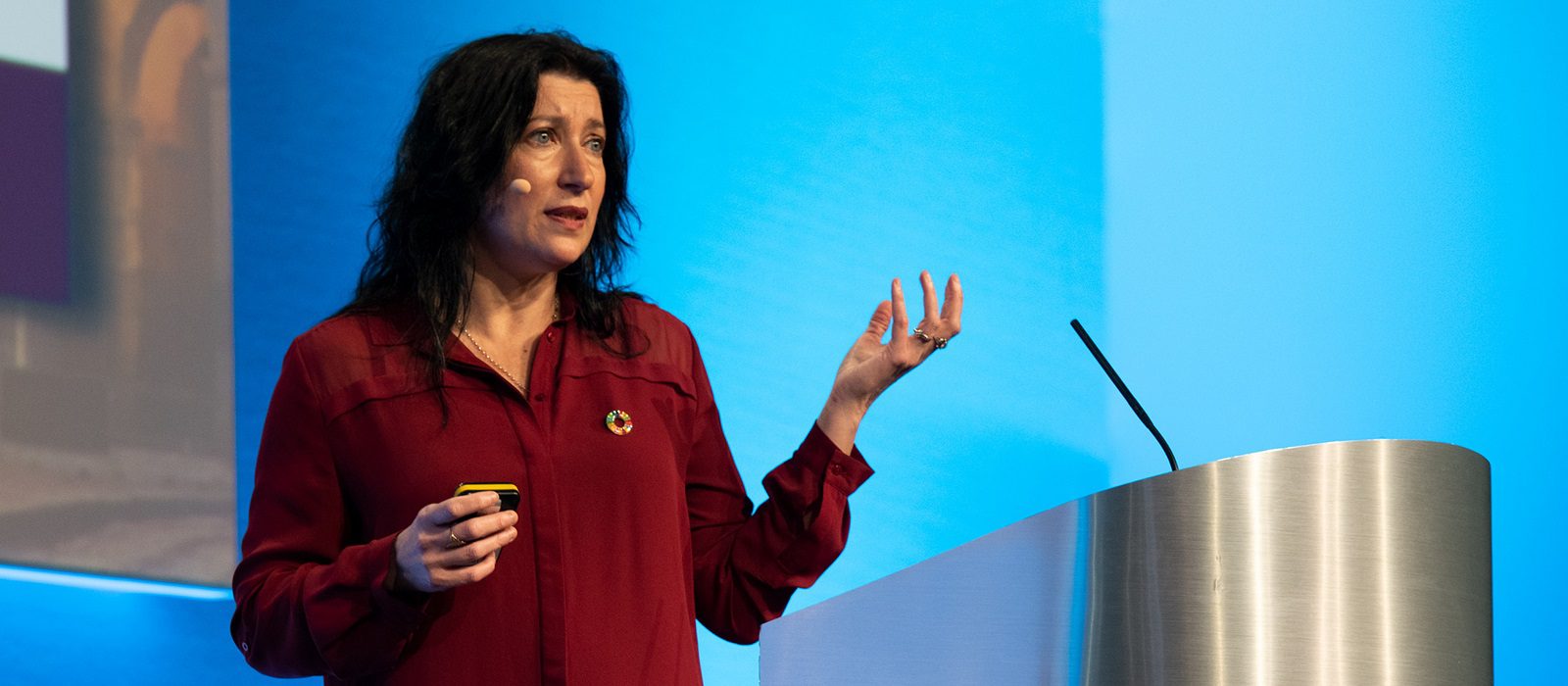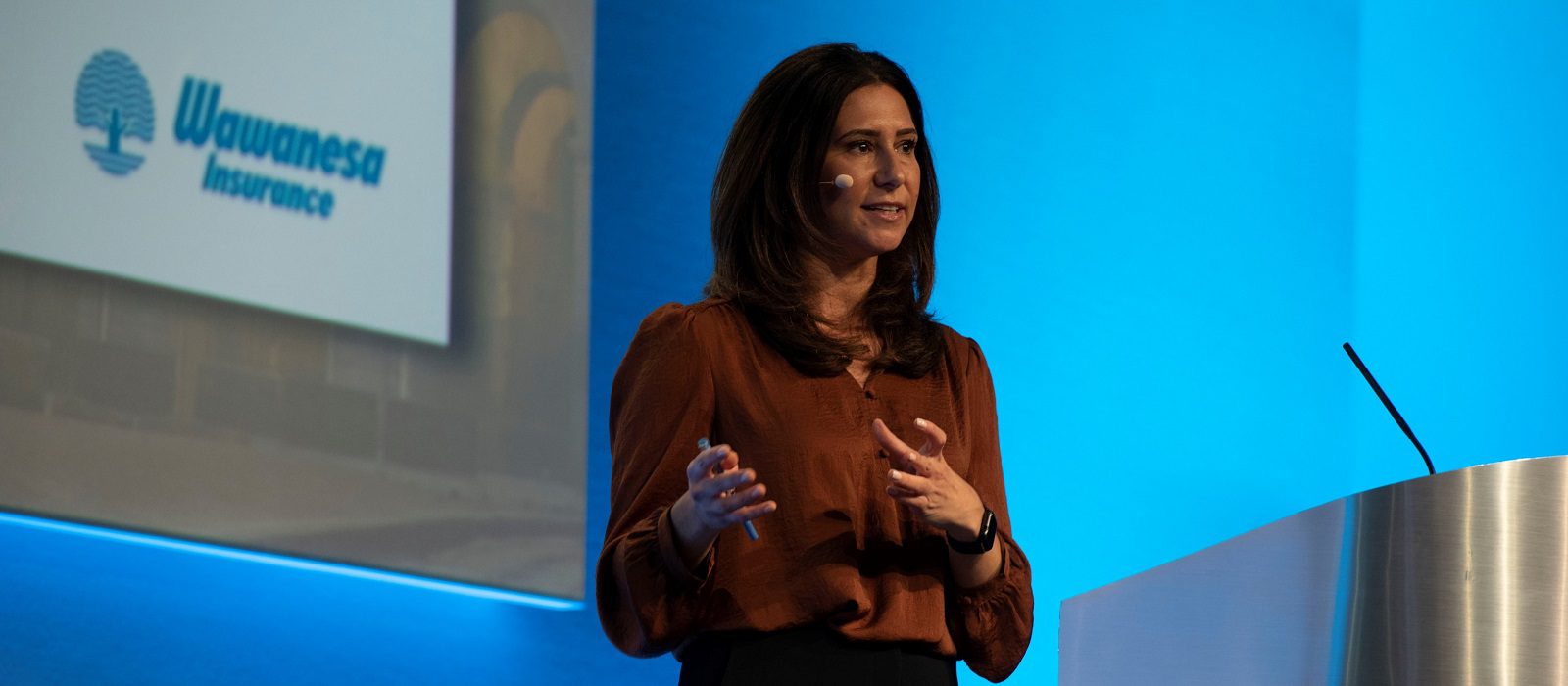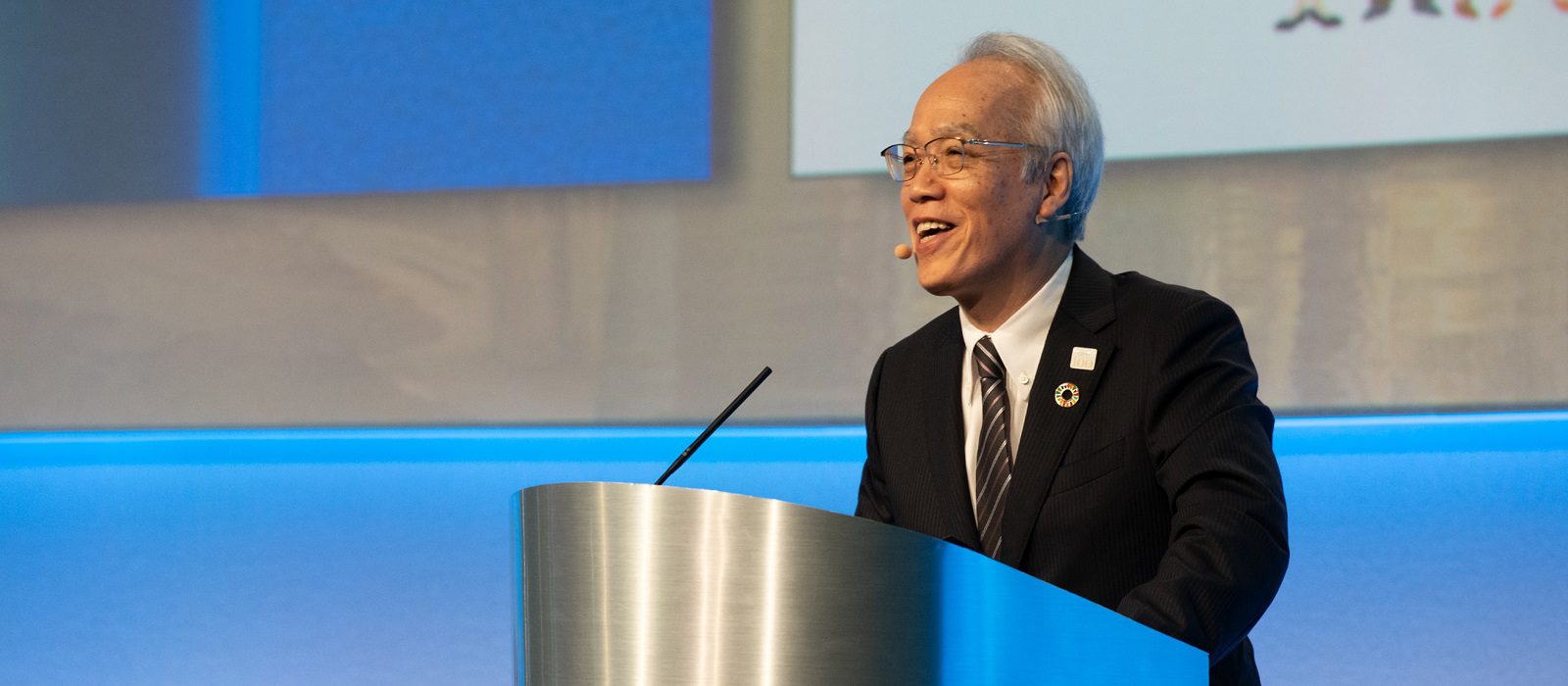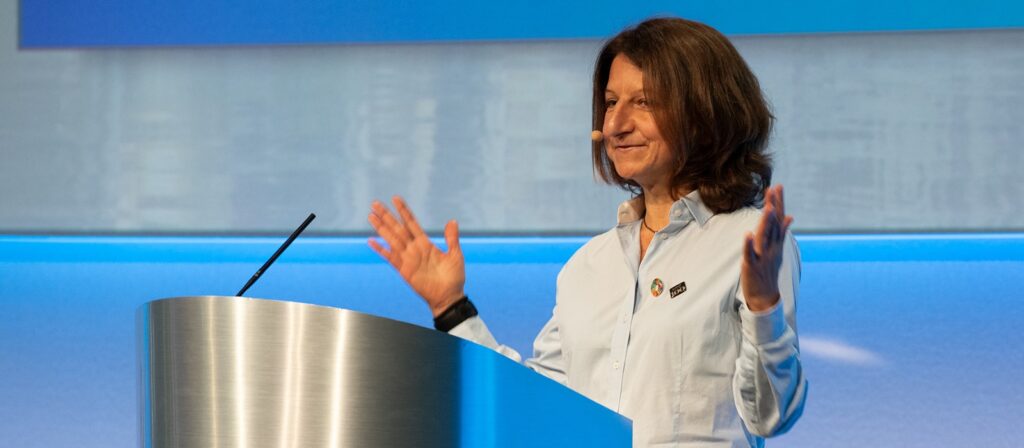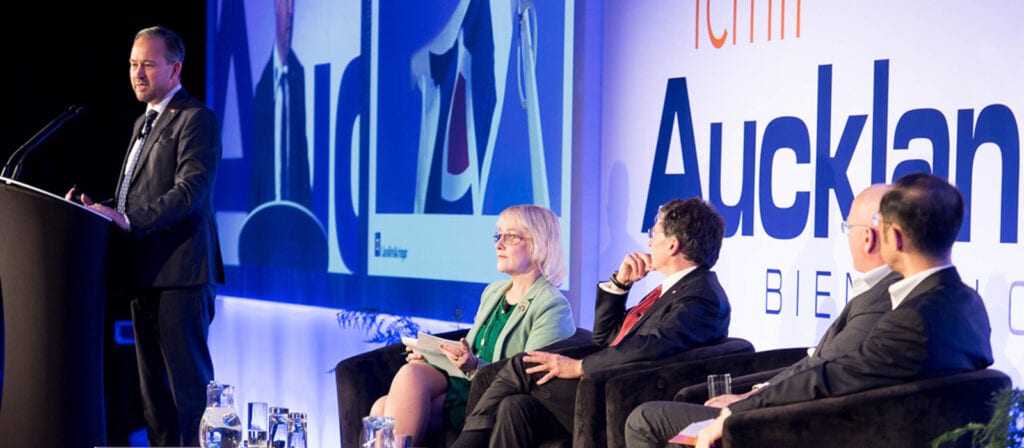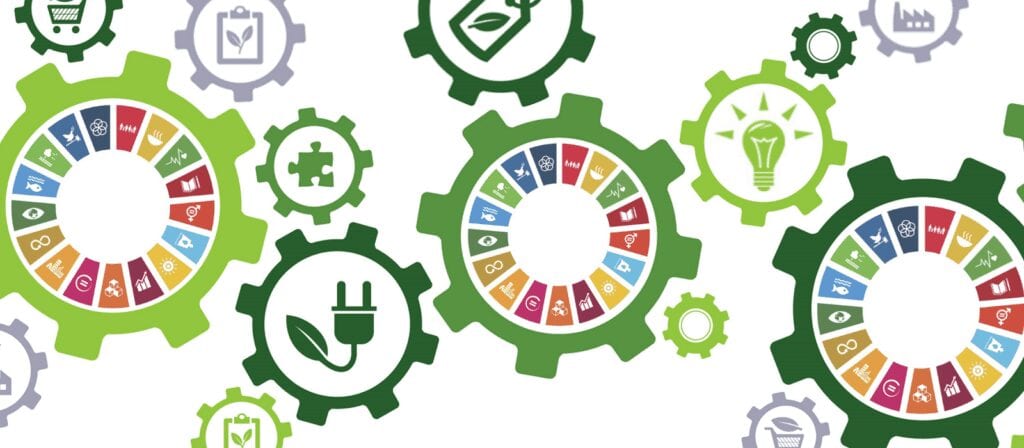Swiss Re (Switzerland) transformed its mission statement five years ago: from being an allocator of capital and providing the strongest return to its investors; to making the world more resilient. Two of its goals are to be net zero in their operations by 2030 and in its underwriting and business by 2050. Its approach is to start with their own house, managing their own footprint. The organisation also has the benefit of engaging with a broad range of stakeholders and part of their mission is about generating leadership, to share and co-create knowledge and insights to move forward together as an industry and community.
Historically, Swiss Re looked at an ESG risk process, identifying risk that they do not want to support and how to exclude things that should not be part of their underwriting portfolio. The next step of their journey is using underwriting to enable sustainability and progress. This resonates with all of their stakeholders: particularly employees, but also shareholders. Sustainable business is good business, and they are finding ways to be sustainable in a truly profitable way.
Sancor Seguros (Argentina) started its sustainability journey in 2005, when it decided to develop a process of social responsibility, good governance and sustainability. By 2022, it has come up with five fundamental pillars of what it needs to focus on.
First, dialogue with all stakeholders: from customers to employees, to understand their expectations in the way it manage its business.
The second pillar is innovation and development of sustainable products and services, such as remote medicine and parametric insurance products. This also includes developing scientific research and innovation in the area of prevention (ie identifying illnesses before they affect a patient).
The third pilar is development of CSR initiatives in prevention, health and safety. One of Sancor’s programmes is to do with prevention of traffic and road accidents.
The fourth pillar is value creation and generation. With the knowledge they obtain from dialogue with clients and their intelligence gathering centre they have developed ventures with other insurance companies focusing on the values of cooperatives.
The fifth pillar is measurement. Using economic, social and environmental indicators, they measure the results of their performance to determine future objectives. In 2015, the company launched their Sustainable Citizen programme to raise awareness of the importance of being insured, prevention and promotion of a healthy lifestyle and safety.
Wawanesa (Canada) started its sustainability journey in 2021, when it launched a new strategy called “Leading with mutuality”, which focused on creating value for its members and communities through member-centricity and ESG.
Wawanesa approached the work to start a sustainability journey by looking at the external environment and doing research, leveraging the work ICMIF members had already done. There was a lot of foundational work that needed to be done around climate resiliency and its next step was to have discussions within the whole company to understand what it was currently doing and the opportunities in this area.
As a mutual insurer, Wawanesa exists for the benefit of its members, working to build a more sustainable future for members and communities. Its sustainability strategy is focused on five strategic dimensions: sustainable insurance solutions; sustainable investing; sustainable operations; stakeholder engagement: and transparency and disclosure.
Wawanesa’s work on climate resiliency threads through all the dimensions of its priorities and aligns with the pillars of its corporate strategy around member centricity, sustainability and community. One example is their Stronger Homes coverage which, in the event of a claim or loss, the policyholder can build back to a more resilient state.
To hold themselves accountable, Wawanesa created a three-part mandate: strengthening climate resiliency; advancing environmental stewardship; and building diversity, equity and inclusion (DEI). The company has linked this to the SDGs and measurements that will form the basis of its sustainability reporting.
Zenkyoren (JA Kyosai) is part of the JA Group, a group of agricultural cooperatives who have supported the livelihoods of rural communities in a comprehensive way for more than 70 years. The Japanese insurer also provides life, building and automobile insurance. In recent years they are returning to their roots, focusing on the sustainability of agriculture which is the foundation of their business.
Zenkyoren is committed to the sustainability of local communities and agriculture through insurance and social activities. Keeping members at the heart of their activities, their purpose is not only to provide insurance protection; but to also educate about risk, implement preventative measures, and to promote kyosai (cooperative) insurance for risks that cannot be avoided.
Zenkoyren have four initiatives related to the UN Sustainable Development Goals (SDGs): contribution to healthy and productive lifestyles; realisation of safe and secure local communities; contribution to sustainable agriculture; and contribution to global environment.
Some notable examples of how they achieve these initiatives include: promoting health, educating children and the elderly on traffic safety, and social reintegration assistance for those who have been injured in a traffic accident.
Aiming to prevent agricultural accidents, they have developed a virtual reality (VR) tool and provide nationwide education programmes. They have developed agricultural risk diagnosis which can be used on smart phones, computers or on paper. They offer comprehensive cover to individuals who identify risk through these activities.
Zenkyoren contributes to solving global environmental problems such as climate change, global warming and environmental conservation. They are doing this through promoting local production and consumption through education; assisting agricultural innovation; and expanding its ESG investments (which also support the SDGs). The company established a revitalisation fund six years ago to support local communities. In total 12 million people have taken part in various events supported by this fund.
During the Conference, ICMIF launched the ICMIF-calibrated Insurance SDG Calculator, the first tool to measure insurance sustainability impact against the Insurance Sustainable Development Goals (iSDGs). The Swiss Re Institute developed the underlying tool under the UN Principles for Sustainable Insurance (UN PSI) iSDG initiative, focused on developing insurance-relevant adaptations to the UN Sustainable Development Goals (SDGs). The tool measures iSDG sustainability impact within individual company insurance portfolios and business operations.
The commitment framework enables ICMIF mutuals and cooperatives to assess their own iSDG impact against a set of ICMIF-calibrated indicators that reflect mutual values and strategic focal areas, such as risk prevention and inclusive insurance.
Session speakers:
- Betina Azugna, Sustainability Manager, Grupo Sancor Seguros (Argentina)
- Kimberly Palatnick, Vice President, Strategy & Sustainability, Wawanesa Mutual Insurance Company (Canada)
- Fumio Yanai, President of the Board of Directors, Zenkyoren (Japan)
- Mike Mitchell, Head P&S Underwriting Reinsurance, Swiss Re (Switzerland) moderator
